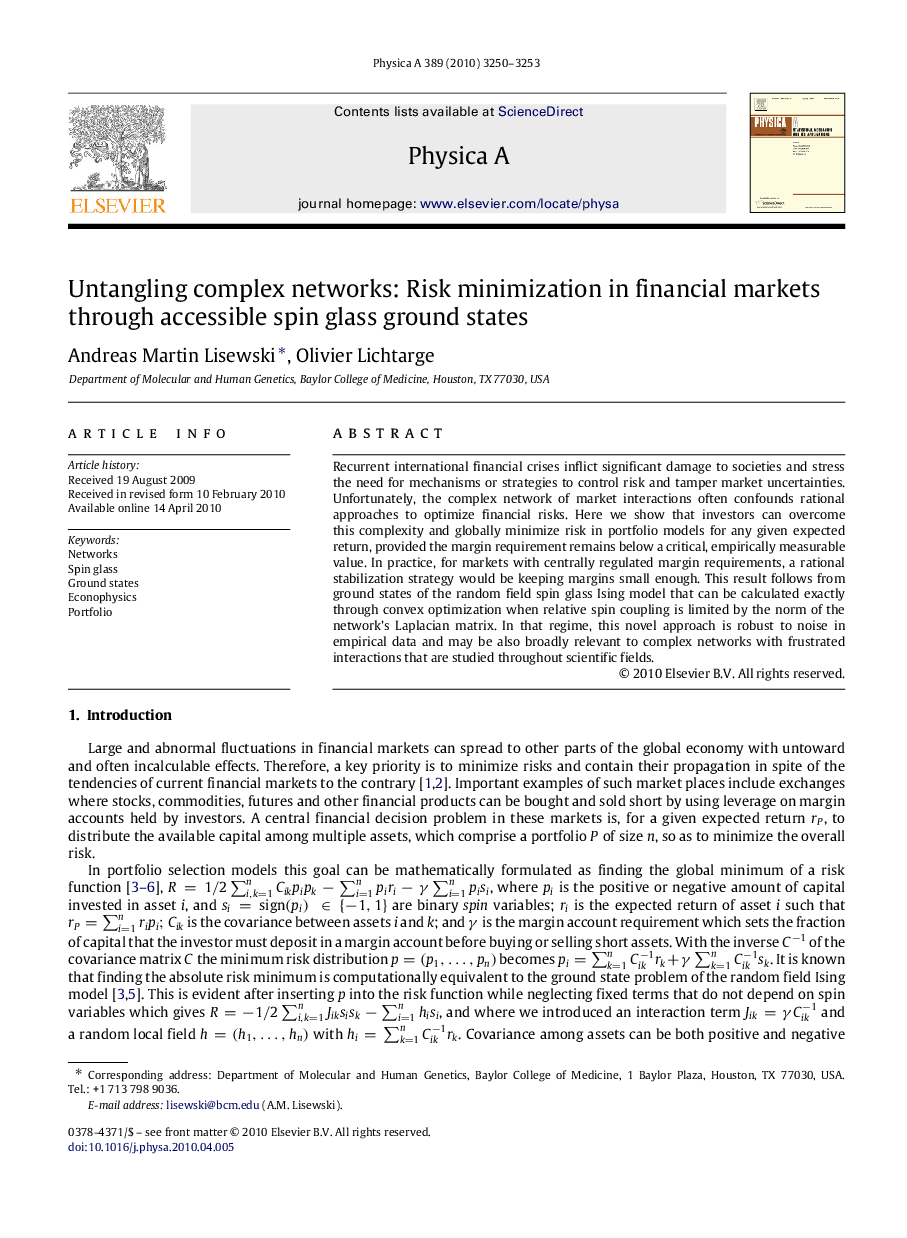| Article ID | Journal | Published Year | Pages | File Type |
|---|---|---|---|---|
| 978953 | Physica A: Statistical Mechanics and its Applications | 2010 | 4 Pages |
Abstract
Recurrent international financial crises inflict significant damage to societies and stress the need for mechanisms or strategies to control risk and tamper market uncertainties. Unfortunately, the complex network of market interactions often confounds rational approaches to optimize financial risks. Here we show that investors can overcome this complexity and globally minimize risk in portfolio models for any given expected return, provided the margin requirement remains below a critical, empirically measurable value. In practice, for markets with centrally regulated margin requirements, a rational stabilization strategy would be keeping margins small enough. This result follows from ground states of the random field spin glass Ising model that can be calculated exactly through convex optimization when relative spin coupling is limited by the norm of the network's Laplacian matrix. In that regime, this novel approach is robust to noise in empirical data and may be also broadly relevant to complex networks with frustrated interactions that are studied throughout scientific fields.
Related Topics
Physical Sciences and Engineering
Mathematics
Mathematical Physics
Authors
Andreas Martin Lisewski, Olivier Lichtarge,
